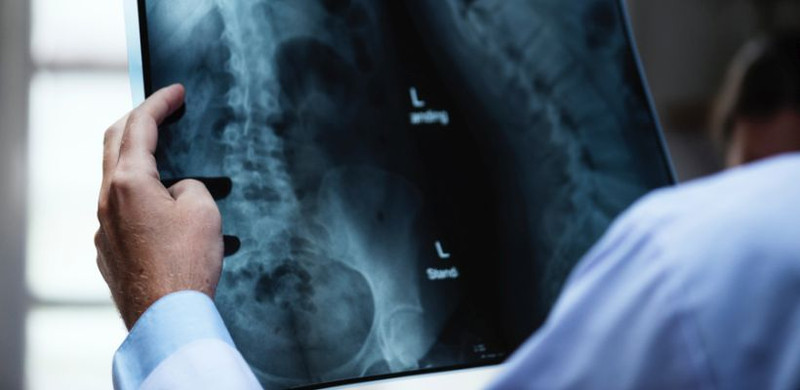May is National Osteoporosis Awareness and Prevention Month. If you're like most people, bone health isn't high on your priorities list. After all, as long as your posture is good and you aren't suffering fractures from minor falls, you're fine… right?
Unfortunately, more adults are susceptible to injury resulting from osteoporosis than you might expect.
According to the Centers for Disease Control and Prevention:
5.1% of men and 24.5% of women 65 years of age and over have osteoporosis of the femur neck or lumbar spine.
What Is Osteoporosis?
So, what is osteoporosis? To understand, it helps to know a little bit about how bones work. Bones are comprised of living tissues that constantly break down and rebuild. In healthy adults, bone growth outpaces bone resorption. When resorption eclipses bone growth, a condition known as osteoporosis" occurs. This can make a patient more susceptible to fractures and loss of height.
What Can You Do to Reduce Osteoporosis Risk?
You can reduce your risk and improve your bone health this month by:
#1 Seeing your doctor. Your doctor can perform a bone mineral density test that's totally painless and noninvasive by using a DXA (dual energy x-ray absorptiometry) machine. Once you know your risk, you know what you're up against!
#2 Taking a calcium complex / bone health formula. A calcium complex can help you maintain normal bone density by providing your body with critical minerals and trace elements. These capsules contain important elements like calcium, magnesium, manganese, and vitamin B6.
Pick up a calcium complex bone health formula here.
#3 Exercising regularly. Both weight-bearing and muscle-strengthening exercises are critical for building and maintaining bone density. As always, consult with your doctor before beginning a new exercise program.
#4 Eating plenty of calcium and vitamin D. Foods rich in calcium play a major role in bone health. As you probably know, calcium helps build healthy bones. However, you might not know that we all lose calcium through our hair, skin, nails, and toilet duties! Because the human body can't make calcium for itself, it's critical to get it through food or supplements. Depending on your age, you may need 1,000-1,2000 mg per day. Dairy, green vegetables, and many fortified foods are high in calcium. You can also get calcium through a
calcium/vitamin D supplement.
Vitamin D is important because it helps the body absorb calcium. Sunlight is a primary source of vitamin D, though some foods – like fatty fish and fortified foods – are also sources of vitamin D. Because it's difficult to get adequate amounts of vitamin D from food, many doctors advise their patients to
take a vitamin D supplement.
#5 Take the Jumping Jack Challenge. Join in the National Osteoporosis Foundation's
Jumping Jack Challenge. Jumping jacks are known to help build bone strength and density at a younger age, which is why the NOF is encouraging kids and adults alike to record videos of themselves doing 10 jumping jacks in 10 seconds. Post the videos to social media, and tag a friend, challenging them to film themselves or donate to NOF instead!
What are you going to do for
your bone health this month?
Tell us on Twitter! or
Facebook!

